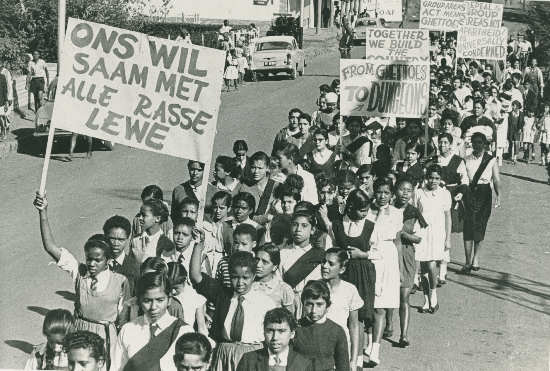In an age dominated by technology, where communication is often reduced to text messages, tweets, and memes, the question arises: Why do people still write poems today? Poetry, often perceived as a relic of a bygone era, continues to thrive, finding new audiences and practitioners in unexpected places.
Main Reasons Why Do People Write Poems Today?
People write poems today to express complex emotions, offer social and political commentary, connect with others through digital platforms, embark on a journey of self-discovery, and create beauty in a world often focused on efficiency. Poetry remains a powerful and relevant form of expression, allowing individuals to articulate their deepest thoughts, challenge societal norms, and find solace in the creative process. Despite the rise of digital communication, poetry endures as a timeless art form that adapts to the evolving ways people connect and communicate.
This article explores the reasons why poetry remains a relevant and powerful form of expression in the 21st century, drawing on realistic examples and relatable experiences to illustrate its enduring appeal.
1. Poetry as a Form of Emotional Expression
One of the most compelling reasons people write poems today is to express emotions that might be too complex, intense, or nuanced for everyday language. In a world where we are often encouraged to be efficient and straightforward, poetry offers a space for vulnerability and introspection. Take, for instance, the rise of Instapoetry, a genre popularised by poets like Rupi Kaur. Her short, poignant verses about love, heartbreak, and identity have resonated with millions of readers worldwide. These poems, often accompanied by simple illustrations, tap into universal emotions in a way that feels both personal and communal.
For many people, writing poetry is a way to process experiences that are difficult to articulate in prose. Whether it’s the grief of losing a loved one, the joy of a new relationship, or the frustration of navigating a challenging life transition, poetry allows for a deep, reflective engagement with one’s emotions. This is particularly relevant in today’s world, where mental health is increasingly recognised as essential, and individuals are seeking out creative outlets to cope with stress and anxiety.
2. Poetry as a Tool for Social and Political Commentary
Another significant reason why people write poems today is to comment on social and political issues. Poetry has long been a vehicle for activism and protest, and this tradition continues in modern times. In South Africa, poets like Lebo Mashile use their work to address issues such as gender inequality, racism, and xenophobia. Through poetry, these writers challenge societal norms and give voice to those who might otherwise be unheard.
The appeal of poetry in this context lies in its ability to distill complex ideas into powerful, concise statements. A poem can capture the essence of a social issue in a few lines, making it an effective tool for raising awareness and sparking discussion. In a world where information overload is common, the brevity and emotional impact of poetry can cut through the noise and make a lasting impression.
3. Poetry in the Digital Age: Accessibility and Community
The digital age has also transformed the way people engage with poetry. Platforms like Instagram, Twitter, and Tumblr have made it easier than ever for individuals to share their poems with a global audience. This accessibility has democratized poetry, allowing voices from diverse backgrounds to be heard and appreciated.
For example, the #PoetryCommunity hashtag on X connects poets from around the world, creating a virtual space for sharing, critique, and encouragement. This online community fosters a sense of belonging and support among poets, many of whom might not have access to traditional literary circles. The instant feedback and validation provided by likes, retweets, and comments can be incredibly motivating, encouraging more people to take up poetry as a form of self-expression.
Furthermore, digital platforms have allowed for the experimentation and evolution of poetry. The constraints of social media, such as character limits, have led to the development of new poetic forms that are concise and impactful. This adaptability of poetry to new mediums ensures its continued relevance in a rapidly changing world.
4. Poetry as a Personal Journey and Self-Discovery
For many, writing poetry is a deeply personal journey that aids in self-discovery and understanding. The process of crafting a poem can be introspective, forcing the poet to confront their thoughts and feelings in a structured way. This can be particularly valuable for individuals going through difficult periods in their lives, such as adolescence, midlife crises, or grief.
Consider the experience of Amanda Gorman, the youngest inaugural poet in U.S. history, who turned to poetry as a way to overcome a speech impediment. Writing and reciting poetry not only helped her find her voice but also led her to a deeper understanding of herself and her place in the world. Her journey highlights how poetry can be a tool for personal growth and healing.
5. The Timeless Appeal of Beauty and Art
Lastly, people write poems because of the inherent beauty of the art form. Poetry allows for the playful manipulation of language—its sounds, rhythms, and meanings. For those who appreciate the aesthetic qualities of words, writing poetry is a way to create something beautiful and meaningful.
This aspect of poetry is often seen in love poems, where the writer seeks to capture the complexity and intensity of romantic feelings in a way that is both elegant and evocative. Even in today’s fast-paced world, there is still a place for the slow, deliberate crafting of a poem that aims to capture the essence of beauty.
Conclusion
People write poems today for many of the same reasons they always have: to express emotions, comment on society, connect with others, explore their inner selves, and create beauty. However, the ways in which they write and share poetry have evolved, with digital platforms providing new opportunities for engagement and innovation. As long as there are feelings to express, injustices to challenge, and beauty to capture, poetry will remain a vital and relevant art form in our world. Its enduring appeal lies in its ability to adapt to the times while continuing to offer a unique and powerful way to understand and communicate the human experience.
References
- Kaur, R. (2014). Milk and Honey. Andrews McMeel Publishing.
- Mashile, L. (2005). In a Ribbon of Rhythm. Oxford University Press.
- Gorman, A. (2021). The Hill We Climb: An Inaugural Poem for the Country. Viking Books.
Looking for something specific?
[ivory-search id="163692" title="Default Search Form"]







Leave a Comment